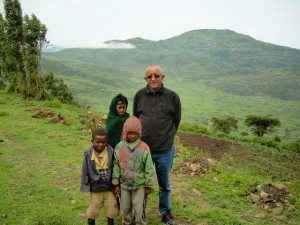
The Past
Since independence, Africa has endured a plethora of economic and development paradigms, improbable strategies and confusing agendas, all with only marginal success. The central problem is not so much that the objective was not realized but that development was never really on the agenda because political conditions derailed it. The roots of the problem can be traced to the colonial legacy, the calculation of power by post-colonial elites, despotic rule and statist economies. The result of this legacy is that at independence, with few exceptions, the past was reproduced and reinforced by new social forces. The new state managers that led these forces used the social basis of democracy to gain—and keep—arbitrary political power, leaving the character of the state to remain much as it was in the colonial period. The result was the misuse of state power for rent seeking and accumulation, resulting in ruptures in state-society relations.
The Attempt
Arbitrary political power in the hands of the new state managers led to the establishment of a new ideology of the one-party state, justified by the objectives of national integration and rapid economic development, but used, instead, as a means of reproducing political hegemony. The new leaders were so consumed in the struggle for power that everything else, including development, was marginalized and passed on to foreign patrons who offered various development models, which came into conflict with different social structures and material conditions on the ground. This false start in Africa came about because leaders neglected the institutional underpinnings of development, paying too much attention to the “modern sector” while ignoring political structures and indigenous social institutions and cultures of rural people, who were treated with outright disdain. Thus, the ideology of development was used by Africa’s elites to entrench their domination and was shaped by their political calculus and that of their foreign patrons in the context of the Cold War. African elites failed to question the development process and goals and simply accepted a plethora of paradigms that in the end meant nothing. The foreign patrons packaged “development” as a universal good, a sum total of their experiences, and attempted to plant it in Africa’s soil because it allowed them to maintain influence in their former colonies.
It is partially true that Africa continues to be marginalized by innovations elsewhere in science and technology and by a brain drain. In the past, attempts at internationalism via demands for a new international economic order, to bolster terms of trade, did not work. Nor have efforts toward multilateralism, such as the Lome Convention (1975–1995), benefitted Africa. Debt overhang also continues to be a major obstacle to development. But even the cancellation of odious debt—the debt incurred by corrupt regimes in cahoots with corrupt lenders—cannot make up for ineffective policies, bad governance and Africa’s poor position in the world. The discourse of marginalization, meaning the underdevelopment of Africa resulting in the development of powerful nations does not help Africa either but rather encourages non-Africans to be more benevolent to Africa.
The Way Forward
Africa will not be saved by benevolent individuals, however well intentioned, nor donor nations or development “experts.” Africa can move forward only if it focuses internally and utilizes the energy of its people. At one time, that energy won the people their independence; it can achieve a second liberation, this time from incompetent leaders, misguided policies and poor governance.
First, Africans must recognize that what worked for non-African nations in terms of development may not work on the continent. Development is not economic growth per se, even though it makes economic growth possible; development is a process people do for themselves, in accordance with their own choices. Others can facilitate the process, but it rests fundamentally with the African people.
Secondly, development is democracy. Not the donor-driven, elite-oriented democracy that has been reduced to the simplicity of crude multiparty elections, which replaces one notorious regime by another, but a genuine one based on popular sovereignty. The former type of liberal democracy foisted on Africa has no basis in African history or culture; it is based on interest-group theory in which the ordinary citizen is a supplicant for favorable policy results. Hence, it is not conducive to the participation of Africans in the development process. Although the so-called Asian tigers have achieved impressive economic growth under authoritarianism, dictatorial rule has not produced development in the African context.
Africa needs a people-oriented democracy in which people have some genuine decision-making power—beyond elections—in matters that concern and affect them at the national, regional and village levels. In practice, this means an activist, people-oriented legislature and the devolution of power to rural areas thereby making local governments responsible and responsive to their communities. Such democracy will focus on practical social and economic rights of people rather than the abstract rights in a liberal democracy. It will empower not only individuals but also groups by recognizing and giving rights to nationalities, sub-
nationalities and ethnic groups and encourage their free expression as well as political and economic participation.
Third, such democracy, by making the well-being of people the supreme law of development, has the potential to unleash their energies but only if they have some genuine decision-making power over their lives. In such a democracy, development will have meaning only if the legislature is carefully engineered so as to be inclusive not only of different nationalities but also women’s and youth groups who are critical voices that will deepen political participation. This is the first step in the development process. Otherwise, to simply parrot the development paradigm engineered on foreign shores, without reflection, is to simply repeat the disasters of the past that resulted in the economic crisis of the 1970s and 1980s of Africa’s so-called lost decade. The solution is an environment that empowers not the tiny elite but the continent’s vibrant communities. The reason being economic growth begins with governance.
